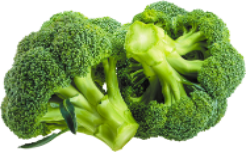Nutrition and Endometriosis
Anna Feld, MPH,RDN, LDN- Dietician at Weeks Wellness in Tallahassee, FL
March is Endometriosis Awareness Month! Endometriosis is an estrogen-dependent condition in which uterine tissue grows outside of the uterus. Women with endometriosis often experience significant pain and irregular menstrual cycles. Nutrition can be a helpful tool to help reduce risk of endometriosis and manage symptoms naturally.
Here are 5 foods to focus on for endometriosis:
Salmon
We all know that salmon is a popular health food - and for good reason! Salmon is rich in omega-3 fatty acids, which can reduce pain from endometriosis. Try grilling it and mixing it into a delicious salad served with brown rice. For an added bonus - season it with turmeric (see below)!
Walnuts
Similar to salmon, walnuts are also a good source of omega-3s and provide a vegetarian source of protein for those that do not eat fish. Try sprinkling some on top of your morning oatmeal or yogurt to add an extra boost of nutrition!
Broccoli
Broccoli is a cruciferous vegetable, which means it is a good source of fiber. High fiber diets reduce circulating estrogen in the body. Since endometriosis is an estrogen-dependent condition, this could be beneficial for people living with the condition.
Blueberries
Blueberries contain vitamins C and E, which are antioxidants. Endometriosis is an inflammatory condition, so antioxidants are needed to protect tissues from damage. Research has shown that these nutrients may also reduce endometriosis-related pain.
Curcumin
Curcumin, found in turmeric, is a powerful antioxidant that may also be helpful in the management of endometriosis. Try adding turmeric to a pan of roasted veggies, like cauliflower or Brussels sprouts, for a delicious and inflammation-fighting side dish!






